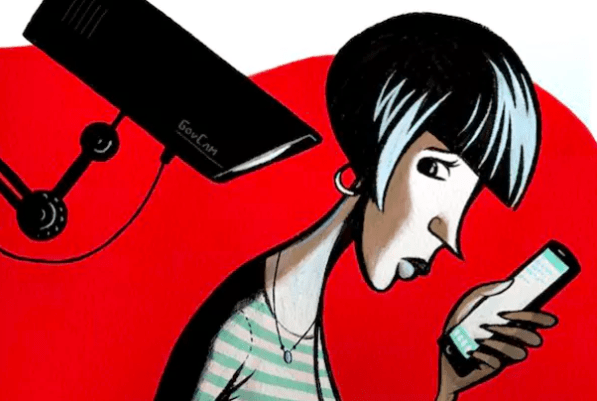After the 9/11 attacks, Tony Blair traced the jihadi menace to the problem of ungoverned spaces, like Afghanistan. In her speech after the London Bridge attacks today, Theresa May used similar language to describe cyberspace. “We cannot allow this ideology the safe space it needs to breed,” she said. “Yet that is precisely what the internet and the big companies that provide internet-based services provide”. What could she have in mind? Not the dark web: that’s notorious but it’s beyond the (current) ability of government to regulate or remedy.
I suspect that the “big companies” she has in mind will be the likes of Facebook, Google, Skype and Apple etc: US-based companies who have long frustrated British spies for their reluctance to co-operate with UK investigations. Even though millions of Brits use their services, the UK authorities have no direct authority over them. Frustration with this situation has been growing over recent years.
We don’t know much about the London Bridge attackers but I suspect the Prime Minister will know a lot more now about the buildup to the Westminster Bridge and Manchester Arena attacks. It could well be that, as with the killers of Drummer Lee Rigby in Woolwich, there actually was a smoking-gun email that could have alerted spies to the impending attack. In Rigby’s case, his assailant – who had been released from intense MI5 supervision only a few weeks before the attack – had sent an undetected email saying “let’s kill a soldier”.
It’s a common myth that sending an email like this triggers some automatic alert in Spy Central. If this was the case, then perhaps Lee Rigby would still be alive. Massive technological strides mean that military-grade encryption now comes as standard, a huge change on ten years ago when hardly any email was encrypted. This has led to more standoffs between spies and the tech firms: MI5 will ask for access to a suspect’s email, and be told that they can’t have this access unless there’s an imminent threat to life (this is the normal test for US-based communication companies). The numbers of jihadis being tracked by MI5 now – some 20,000 on the books, 3,000 on the active watch list and 500 investigations live – means a huge demand for the communications that these people might be sending. Terrorists usually use multiple accounts, and don’t sign up using their own name. So it’s very hard to track.
Also Facebook, Google, Skype etc are registered in California and aren’t answerable to UK regulation – or our spies. Twitter’s rules say that “requests for the content of communications… require a valid US search warrant” – so if the Brits want access to anything, they’d have to ask the Americans. But they have to make these requests sparingly. As the inquiry (pdf) into the Woolwich murder established, “MI5 cannot use this tool [asking US authorities to lodge information requests] in lower-priority investigations or in seeking to identify the threat an individual or network may pose to UK national security.” The US tech giants are also mindful of being prosecuted under US law for giving away information about their clients. They are granted immunity only in “a good faith belief that an emergency involving death or serious physical injury to any person requires disclosure without delay.” So again, the bar for co-operation with MI5 and GCHQ is set pretty high.
The UK security officials are frustrated that email companies don’t do more to spot for jihadi-type language: the “let’s kill a soldier” type emails. It’s common for the US companies to pride themselves on not doing anything of the sort. Apple says it “does not actively monitor communications on its systems”, Twitter says it “does not monitor its users’ communications”. Yahoo says it “does not proactively monitor communications on Yahoo Mail or Yahoo Messenger. That would breach our users’ privacy.”
The Prime Minister said today that she’s facing a new problem. In fact, she’s facing an old one, but with new technological challenges – harder to overcome this time, because the answers are encrypted, and lie on the other side of the Atlantic. As James argues, to suffer three terror attacks in three months does suggest that we need more frank discussion. The technical new difficulties in communications intercept would be a good place to start.







Comments